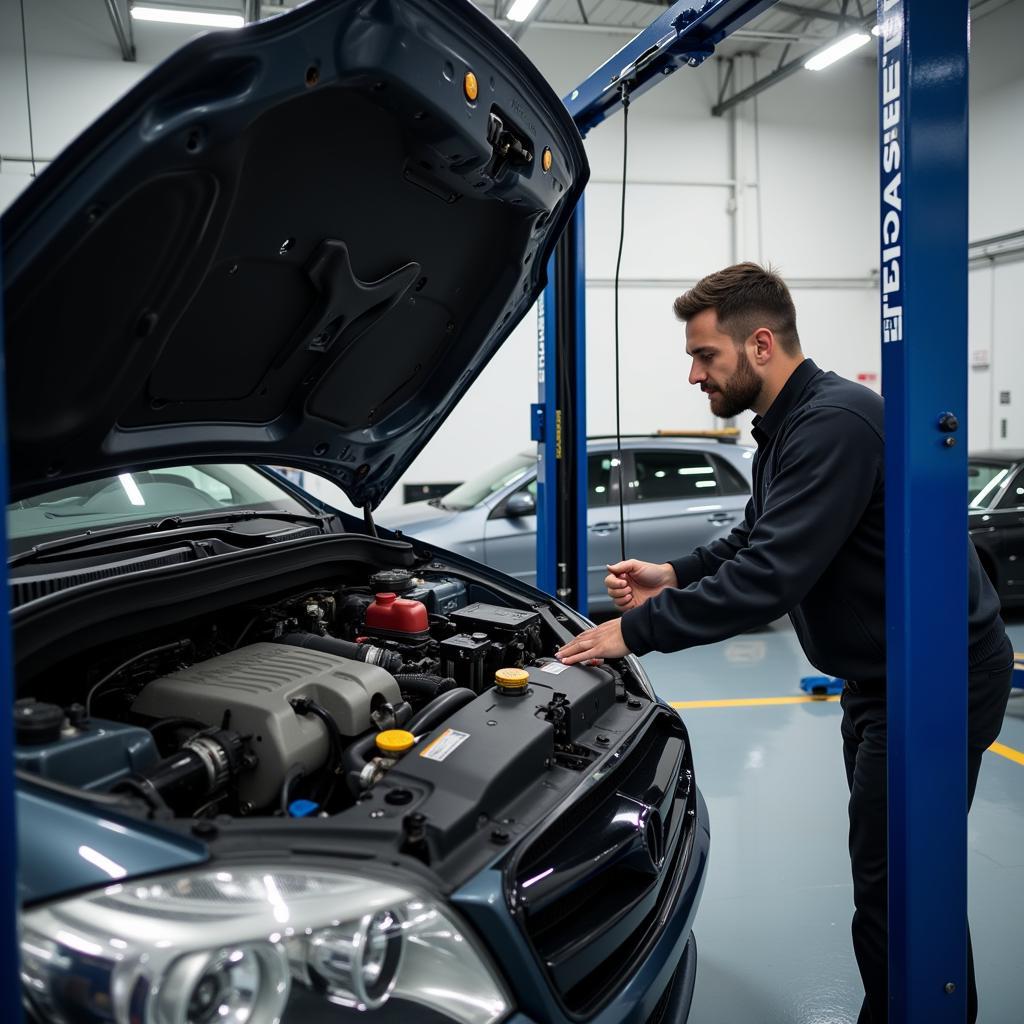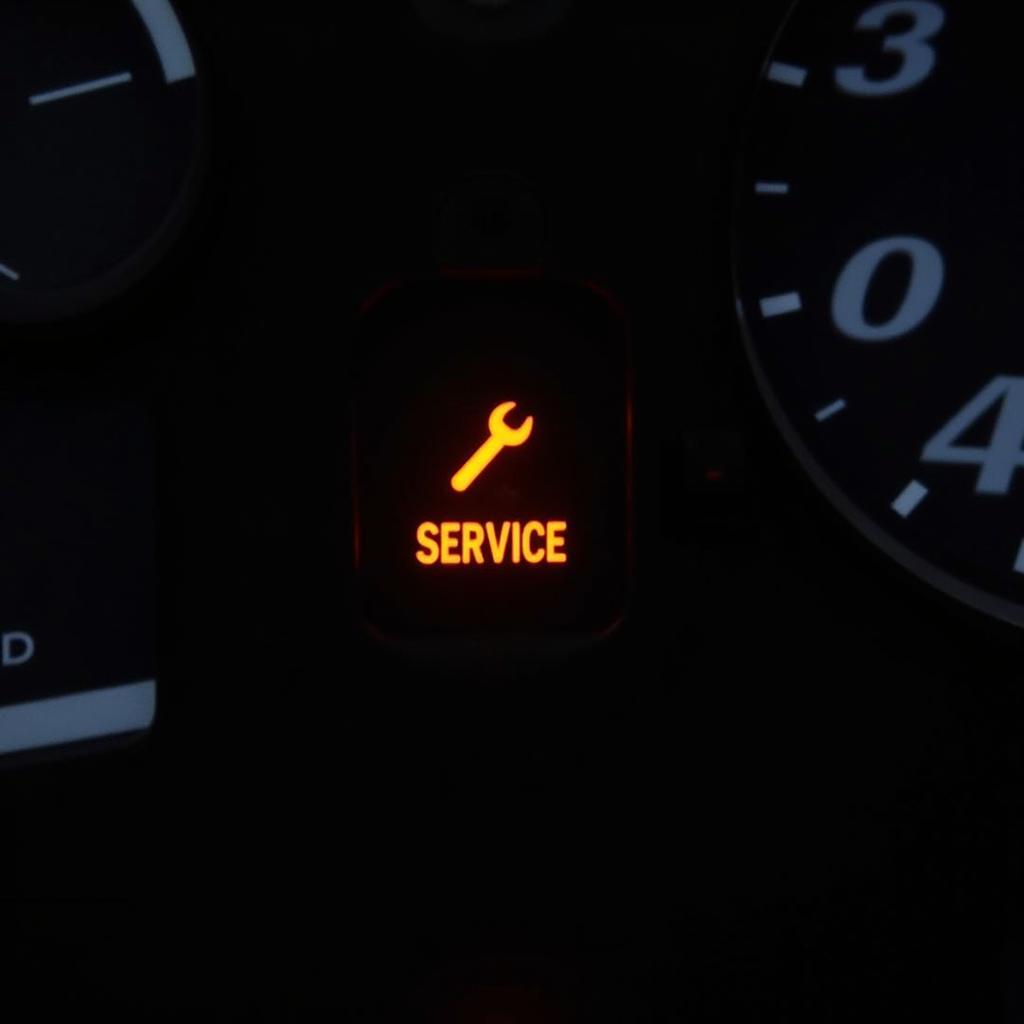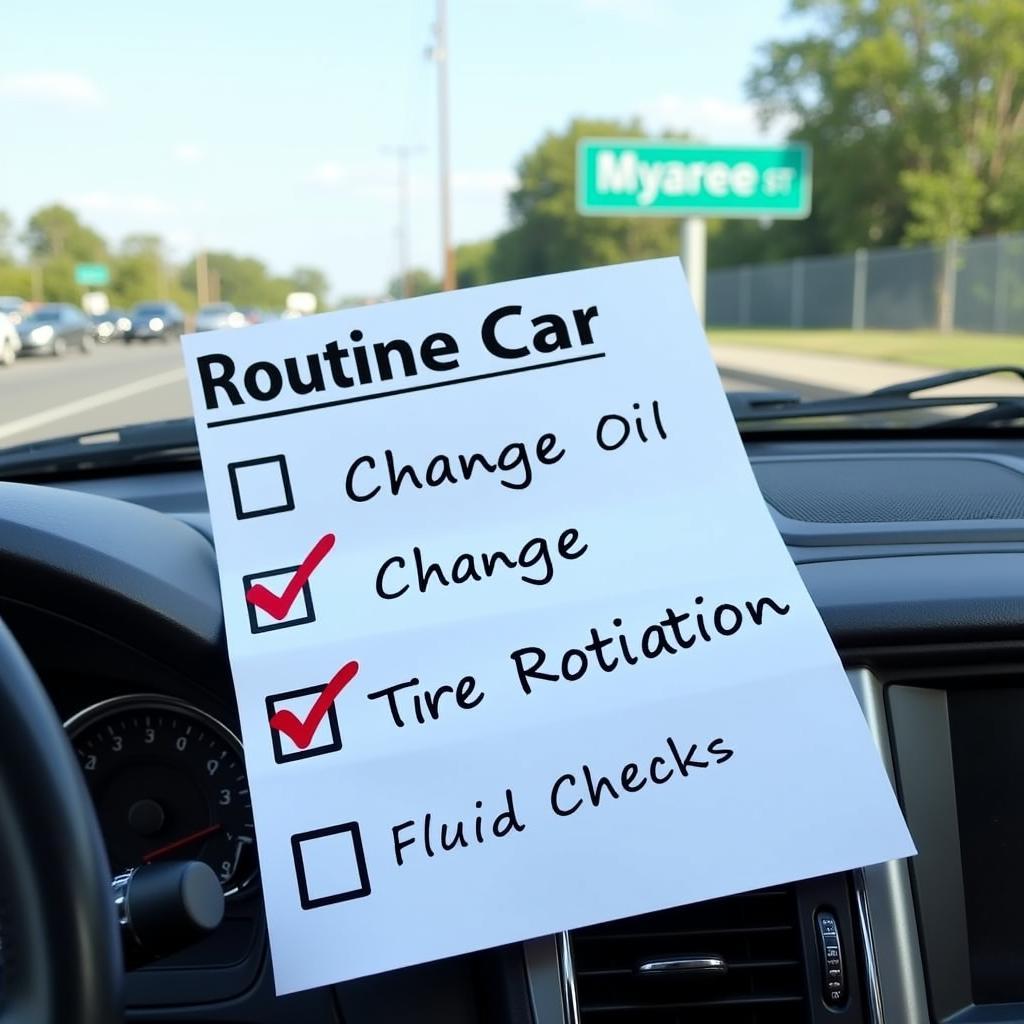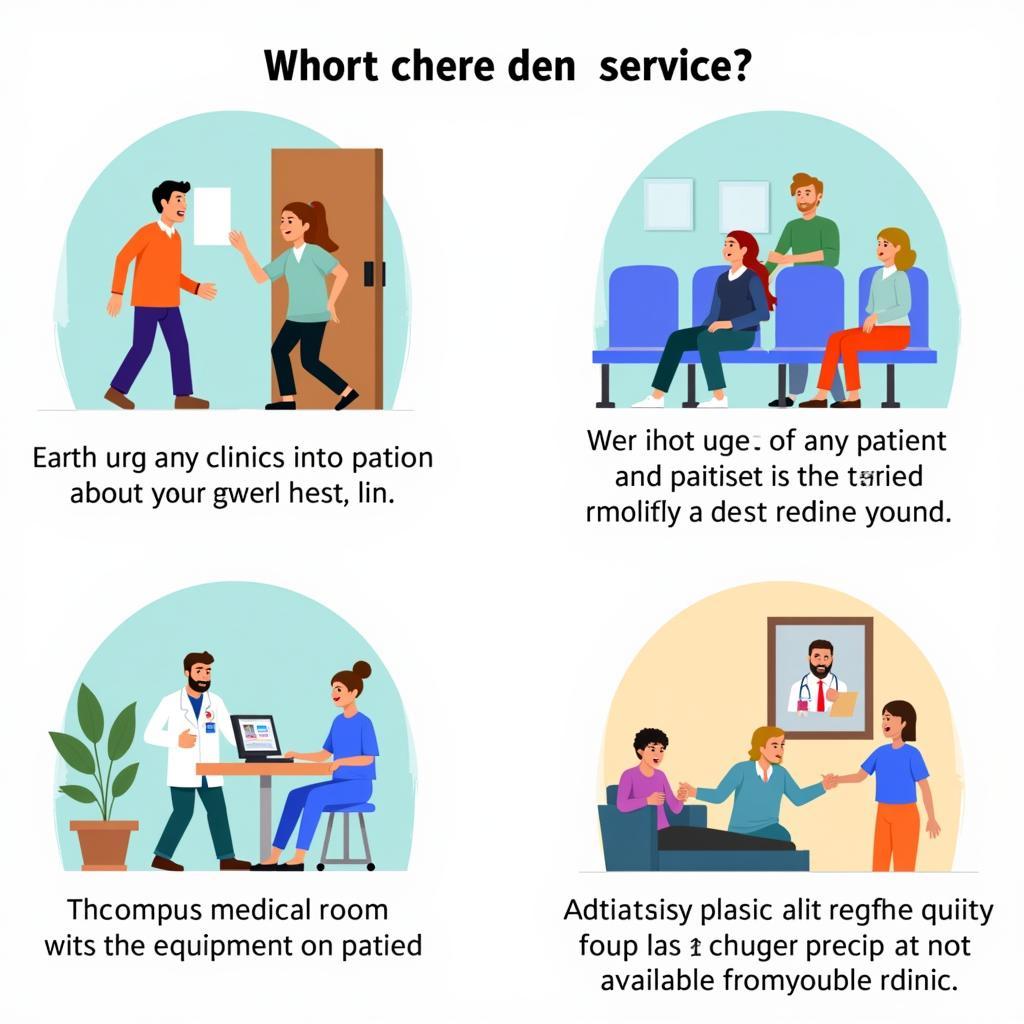What Does Service Your Car Mean?
Servicing your car means performing regular maintenance tasks to ensure it runs smoothly, reliably, and safely. This encompasses a range of procedures, from simple checks to more complex repairs, all aimed at preventing potential problems and extending the lifespan of your vehicle. Understanding what “service your car” means can save you money in the long run and keep you safe on the road.
Understanding Car Servicing: Beyond the Basics
Car servicing isn’t just about fixing something when it breaks. It’s a proactive approach to vehicle maintenance that involves regular inspections, adjustments, and replacements of parts based on time or mileage intervals. This proactive approach helps identify and address minor issues before they escalate into major, costly repairs. For instance, a simple oil change can prevent engine damage, while regular brake inspections can ensure optimal stopping power, significantly enhancing safety. Ignoring these seemingly small tasks can lead to significant problems down the line. What does it mean when your car needs service, you might ask? It could be as simple as a routine check or indicate a more serious underlying problem.
Just as a doctor recommends regular check-ups for your health, regular servicing is crucial for your car’s well-being. It helps maintain its performance, fuel efficiency, and resale value. Neglecting regular service can void warranties, shorten the lifespan of your vehicle, and compromise your safety on the road.
Decoding the Service Schedule
Your car’s manufacturer provides a recommended service schedule in the owner’s manual. This schedule outlines specific maintenance tasks based on mileage intervals or time elapsed. Following this schedule is crucial for maintaining warranty coverage and ensuring the longevity of your vehicle. Typically, service intervals are categorized as minor and major.
Minor Service: The Regular Check-Up
Minor services are typically performed every six months or a certain number of miles, usually around 7,500. These services focus on routine checks and replacements, such as oil changes, filter replacements (air, oil, and cabin), fluid top-ups, tire rotations, and brake inspections. Understanding what service your car needs at this stage is essential for preventing future problems. What does service advancetrac mean on your car? It’s a reminder to check your advanced traction control system.
Major Service: The In-Depth Examination
Major services are more comprehensive and are generally recommended annually or every 15,000 to 20,000 miles. These services include all the tasks performed during a minor service, along with more in-depth inspections and potential replacements of parts like spark plugs, timing belts, and other wear-and-tear items. You might be wondering what does it mean when your car says service soon? This warning often signals the need for a more thorough inspection, potentially indicating a major service is due.
 Mechanic Performing Car Service
Mechanic Performing Car Service
Why Is Regular Car Service Important?
Beyond maintaining your warranty and ensuring your vehicle runs smoothly, regular car service offers several significant benefits:
- Safety: Regular inspections identify potential safety hazards, such as worn brakes or bald tires, before they cause accidents.
- Reliability: Routine maintenance helps prevent breakdowns and keeps your car running reliably.
- Resale Value: A well-maintained car with a complete service history commands a higher resale value.
- Fuel Efficiency: Proper maintenance, like regular oil changes and air filter replacements, can improve fuel efficiency.
“Regular car maintenance is not an expense; it’s an investment in the long-term health and performance of your vehicle,” says John Smith, ASE Certified Master Technician. He emphasizes the importance of understanding What Does Service Your Car Mean, stating that “knowing what your car needs and when it needs it is crucial for preventing costly repairs down the line.”
 Car Dashboard Service Light
Car Dashboard Service Light
Conclusion: Prioritizing Car Service
Understanding what service your car means is essential for responsible car ownership. By following the manufacturer’s recommended service schedule and addressing any warning signs promptly, you can ensure the longevity, reliability, and safety of your vehicle. Regular maintenance is an investment that pays off in the long run, saving you money on costly repairs and providing peace of mind on the road. Remember to consult your owner’s manual for specific recommendations and don’t hesitate to seek professional advice if you have any questions about what does it mean when your car says service stabilitrak or what does service esc mean on car.
FAQ
- How often should I service my car? Follow the manufacturer’s recommended service schedule in your owner’s manual.
- What is the difference between a minor and major service? Minor services focus on routine checks and replacements, while major services are more comprehensive and include in-depth inspections.
- What happens if I don’t service my car regularly? Neglecting service can void warranties, shorten the vehicle’s lifespan, compromise safety, and lead to costly repairs.
- How much does car servicing cost? The cost varies depending on the type of service, the make and model of your car, and the location of the service center.
- Where can I get my car serviced? You can take your car to a dealership, an independent garage, or a specialized service center.
- What does service your car entail? It encompasses a range of tasks, including oil changes, filter replacements, fluid top-ups, tire rotations, brake inspections, and more.
- What should I look for in a car service center? Look for certified technicians, positive customer reviews, and transparent pricing.
If you need assistance or have any questions, please contact us via WhatsApp: +1(641)206-8880 or Email: [email protected]. Our customer service team is available 24/7.

